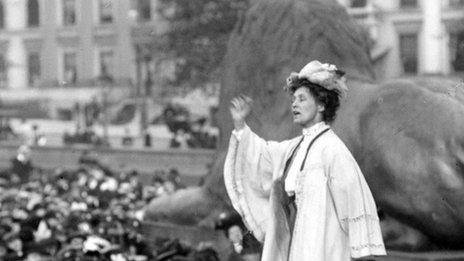Millicent Fawcett statue gets Parliament Square go ahead
- Published
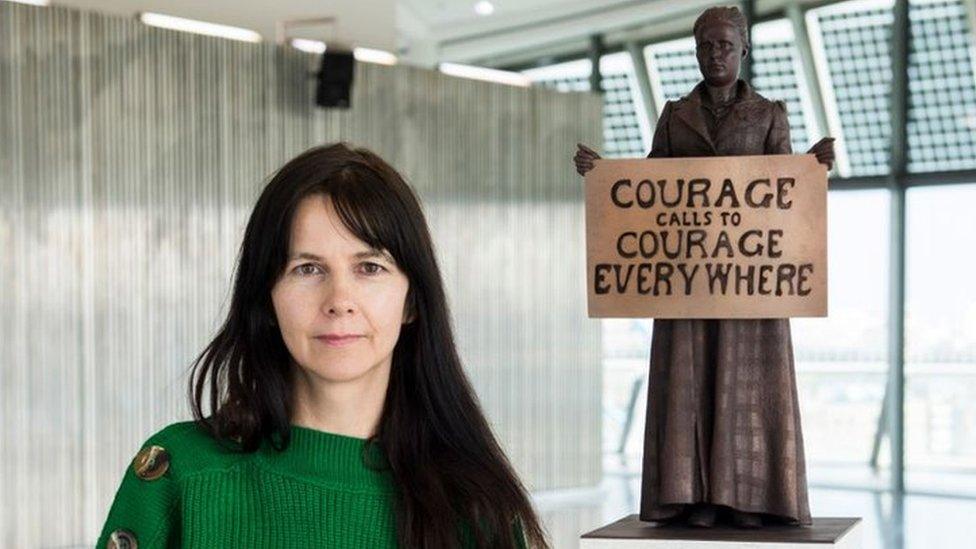
Artist Gillian Wearing, said she was "really delighted that planning has been granted"
The first statue of a woman to be built in Parliament Square has been given planning permission.
A bronze casting of leading suffragist Millicent Fawcett will be unveiled next year to coincide with the centenary of women winning the right to vote.
The statue will be designed by Turner Prize-winning artist Gillian Wearing - the first female sculptor to have a work displayed in the square.
The Mayor of London said the statue was "long overdue".
"This will be one of the most momentous and significant statues of our time," Sadiq Khan said.
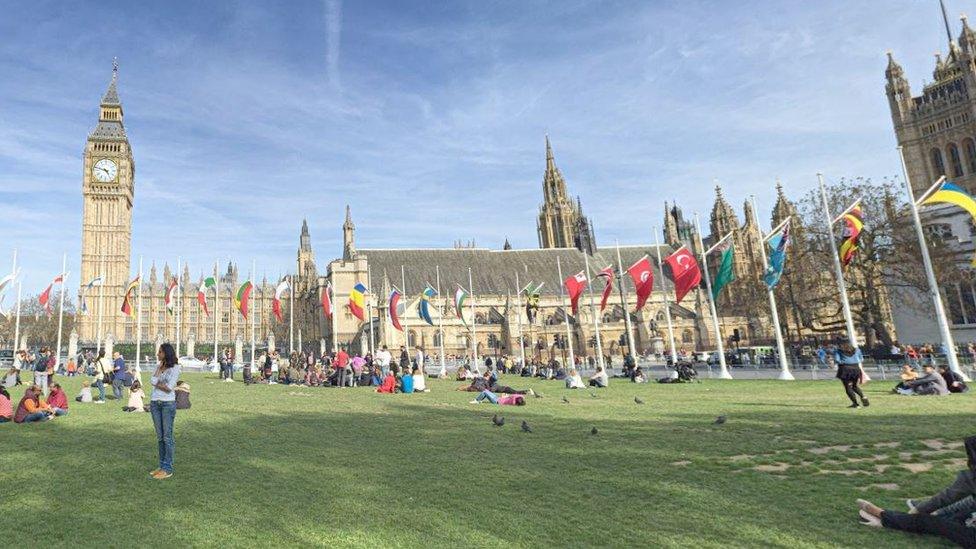
Ms Fawcett founded the National Union of Women's Suffrage Societies in 1897, aged 50.
The organisation used peaceful tactics to campaign, including non-violent demonstrations, petitions and the lobbying of MPs.
It went on to lead to the suffragette movement emerging - the more radical and militant group led by Emmeline Pankhurst.
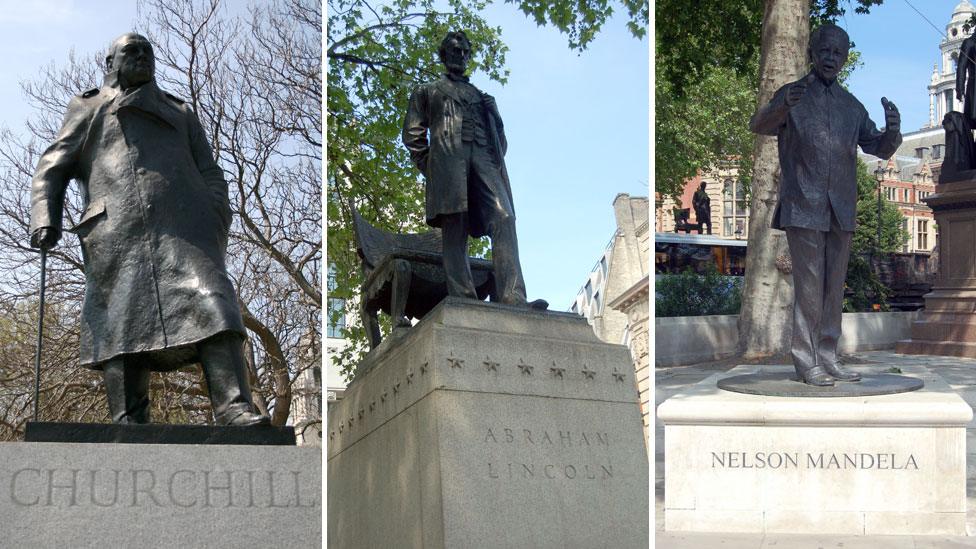
Sir Winston Churchill, Abraham Lincoln and Nelson Mandela are among those with statues in Parliament Square
The statue will portray Ms Fawcett holding a placard reading "courage calls to courage everywhere" - taken from a speech she gave after the death in 1913 of campaigner Emily Wilding Davison at the Epsom Derby.
The new statue will be paid for using the £5m fund announced in this year's spring Budget to mark next year's centenary of the first British women to get the vote.
Dame Millicent died in 1929, a year after women were granted the vote on equal terms to men.
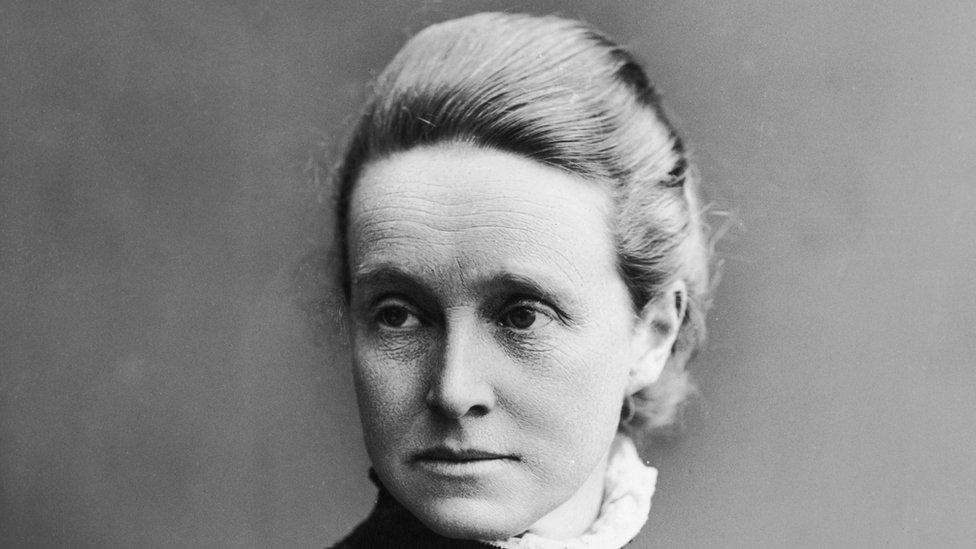
Dame Millicent Fawcett was the founder of National Union of Women's Suffrage Societies
The announcement comes after years of campaigning.
A petition by activist Caroline Criado-Perez to build a statue of a woman in Parliament Square received more than 85,000 signatures on a petition.
Ms Criado-Perez, who also successfully fought for Jane Austen to feature on £10 bank notes, said she was "thrilled" with the project.
- Published2 April 2017
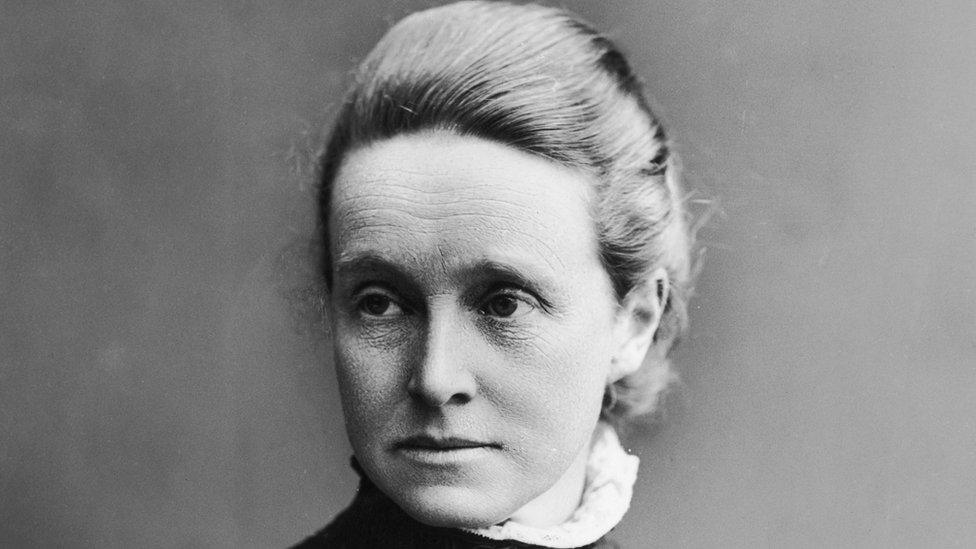
- Published7 June 2016
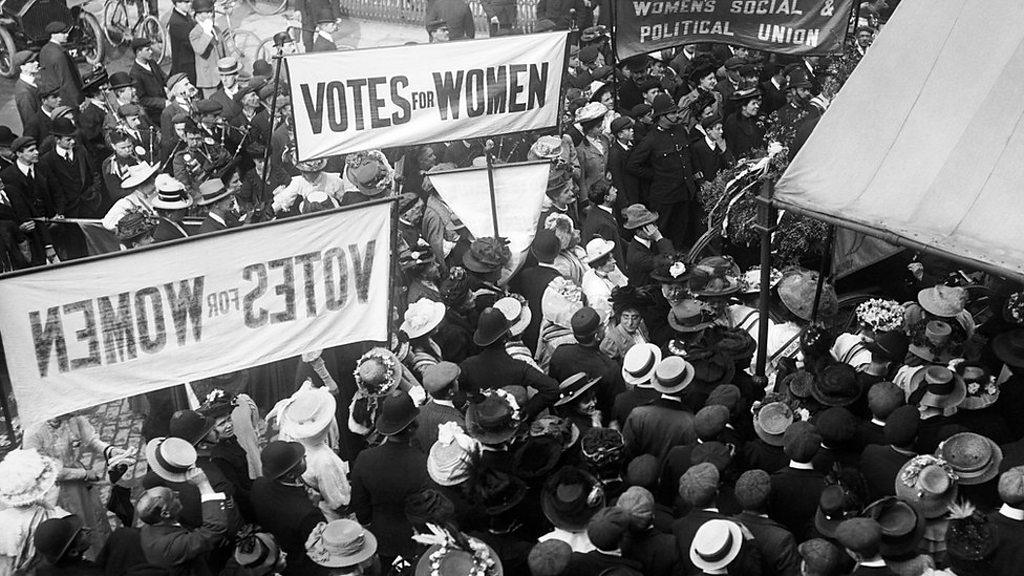
- Published20 January 2016
